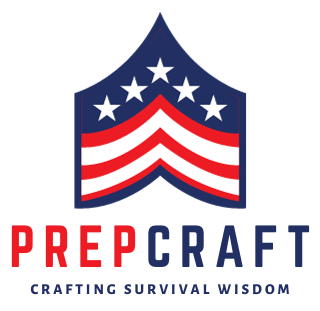
In order to thrive in the face of uncertainty, it is crucial to cultivate a survivalist mindset. This mindset involves embracing adaptability, self-reliance, and resourcefulness. By developing mental toughness and problem-solving skills, I can overcome challenges and navigate through uncertain times. Let’s explore the key elements of a survivalist mindset and discover practical tips for cultivating resilience.
Key Takeaways:
- Cultivating a survivalist mindset is crucial in uncertain times.
- Embrace adaptability, self-reliance, and resourcefulness.
- Develop mental toughness and problem-solving skills.
- Stay informed and build a network for support.
- Focus on sustainability and practice discipline and self-control.
The Qualities of a Survivalist Mindset

Developing a survivalist mindset is not just about physical preparation, but also about cultivating specific qualities of mind that enable individuals to thrive in challenging situations. According to author Carol Osborne, there are seven key qualities of mind that are invaluable in all aspects of life, and twelve mental practices that are especially applicable in life and death scenarios.
In order to navigate through uncertainty and adversity with resilience, it is essential to avoid fear, confusion, hesitation, and surprise. Instead, a survivalist mindset involves cultivating qualities such as:
- Bodily Control: Mastering control over one’s body to stay calm, focused, and composed in high-pressure situations.
- Courtesy: Maintaining politeness and respect for others, even in challenging circumstances, to foster cooperation and unity.
- Humility: Recognizing one’s limitations and seeking to learn from others, as it is impossible to navigate through survival situations alone.
- Confidence: Believing in oneself and one’s abilities, while also being aware of one’s weaknesses, in order to tackle challenges head-on.
A survivalist mindset also requires adaptability. It’s important to remember that survival situations are dynamic, and one must be able to adjust to the actual environment rather than relying solely on pre-conceived notions. This means being open to changes and alternatives, and being able to make a “mental map” of one’s surroundings. Adaptability is a crucial quality that allows individuals to navigate through unpredictable circumstances and overcome obstacles.
In the words of Carol Osborne, “Survival is based on pattern recognition and recognizing what is out of sequence.” By honing these mental patterns and embracing qualities of mind like adaptability, individuals can develop a strong survivalist mindset that equips them to face the unknown with confidence and determination.
Practical Strategies for Cultivating a Survivalist Mindset

Building a survivalist mindset involves implementing practical strategies that can be incorporated into daily life. These strategies focus on enhancing self-reliance, resilience, and preparedness. By adopting these practices, individuals can develop the mental and physical skills necessary to thrive in uncertain times.
Stockpiling Essential Supplies
One of the fundamental aspects of cultivating a survivalist mindset is ensuring the availability of essential supplies. Stockpiling non-perishable food, water, and emergency medical kits helps to prepare for unforeseen events or disruptions. By having a well-stocked pantry and emergency supplies, individuals can enhance their self-reliance and mitigate the impact of unexpected situations.
Mastering Essential Life Skills
To become truly self-reliant, it is essential to acquire practical life skills that are crucial in survival situations. Learning skills such as starting a fire, purifying water, and basic first aid can make a significant difference in times of crisis. Mastering these essential skills enhances self-confidence and enables individuals to adapt to challenging circumstances with resourcefulness and competence.
Mental Preparation through Meditation and Visualization
A strong survivalist mindset requires mental preparedness. Engaging in practices like meditation and visualization exercises helps to develop focus, clarity, and resilience. By training the mind to remain calm and centered, individuals are better equipped to make rational decisions and overcome obstacles when faced with adversity.
Building a Supportive Network
Self-reliance does not mean isolation. Creating a network of like-minded individuals who share a survivalist mindset is essential for mutual support and assistance during challenging times. These connections provide a valuable resource for sharing knowledge, skills, and resources. Building a supportive network fosters resilience and strengthens the overall survivalist community.
Practicing Self-Reliance and Sustainability
A survivalist mindset emphasizes the importance of self-reliance and sustainability. By reducing dependence on external systems and embracing self-sufficiency, individuals can increase their resilience in the face of potential disruptions. This may include cultivating a garden, learning basic home repair skills, and reducing waste to promote environmental sustainability.
Cultivating a survivalist mindset requires a combination of practical strategies and mental resilience. By stockpiling essential supplies, mastering life skills, mentally preparing through meditation and visualization, building a supportive network, and practicing self-reliance and sustainability, individuals can develop the mindset necessary to thrive in uncertain times.
Adaptability and Evolution in Survival Situations

Adaptability and evolution are fundamental aspects of cultivating a survivalist mindset in order to thrive in unpredictable situations. As the world continues to change, it is imperative to be open to new ideas, perspectives, and strategies. By embracing flexibility and adaptability, individuals can enhance their chances of successfully navigating through survival situations and overcoming obstacles.
One crucial component of adaptability is the willingness to learn and acquire new skills. A survivalist must continuously expand their knowledge and expertise to effectively respond to ever-evolving challenges. This involves staying informed about emerging techniques, technologies, and best practices that can contribute to survival in various scenarios.
Evolution is a dynamic process that requires the ability to adjust and refine one’s approach as circumstances change. It goes beyond simply acquiring and implementing new skills. It involves the mental and emotional flexibility to reassess situations, reassess strategies, and make necessary adjustments in real-time. This flexibility allows for better decision-making and increases the chances of survival.
Developing adaptability and evolution also entails fostering self-discipline and self-control. By honing these qualities, individuals can maintain composure under pressure, think logically, and make rational decisions even in high-stress situations. This self-control enables survivalists to effectively analyze their surroundings, assess risks, and identify opportunities for survival.
“Adaptability is about powerful new mindsets and comprehensive strategies that change the rules of the survival game. Evolution is about growing and transforming yourself amidst uncertainty.”
The Importance of Flexibility
Flexibility is a key attribute that enables individuals to adapt and evolve effectively. It allows for openness to different approaches, alternative solutions, and unexpected outcomes. Flexible thinking enables survivalists to consider multiple perspectives and explore creative avenues when facing challenges. By refraining from rigid adherence to preconceived notions, survivalists can adapt their strategies to fit the unique demands of each situation.
Embracing Change for Survival
In survival scenarios, change is inevitable. By actively embracing change instead of resisting it, individuals can position themselves better for success. This involves being aware of the need for adaptation, acknowledging that survival strategies may need to evolve, and remaining open-minded in exploring new possibilities.
When facing unexpected circumstances, a survivalist with an adaptable mindset can quickly assess the situation, identify the necessary adjustments, and implement new strategies to increase their chances of survival. This ability to pivot and adapt in the face of uncertainty is a hallmark of a seasoned survivalist.
Adaptability and evolution are vital traits for survivalists as they navigate unpredictable and challenging situations. The ability to learn, grow, and reassess one’s approach allows individuals to thrive amidst uncertainty. By continually developing these qualities and remaining flexible in the face of change, survivalists increase their resilience and adaptability, enabling them to overcome obstacles and emerge victorious in survival situations.
Conclusion
Cultivating a survivalist mindset is essential in navigating through uncertain times. By embracing adaptability, self-reliance, and resourcefulness, individuals can build resilience and thrive in the face of adversity. The qualities of mind outlined by Carol Osborne provide a roadmap for developing a strong survivalist mindset.
Practical strategies such as stockpiling essential supplies, mastering life skills, and preparing mentally can further enhance our ability to withstand challenging situations. It is important to stay informed about current events, build a network of like-minded individuals, and practice discipline and self-control.
Having a survivalist mindset allows us to approach uncertain times with confidence. We become better equipped to overcome obstacles, make rational decisions, and maintain composure under pressure. By cultivating this mindset, we empower ourselves to navigate through any challenges that come our way, emerging stronger and more resilient.
FAQ
What is a survivalist mindset?
A survivalist mindset involves embracing adaptability, self-reliance, and resourcefulness in order to thrive in uncertain times.
What are the qualities of a survivalist mindset?
The qualities of a survivalist mindset include avoiding fear, confusion, hesitation, and surprise, while cultivating bodily control, courtesy, humility, and confidence.
How can I cultivate a survivalist mindset?
You can cultivate a survivalist mindset by practicing practical strategies such as stockpiling essential supplies, mastering essential life skills, and preparing mentally through meditation and visualization exercises.
Why is adaptability important in a survivalist mindset?
Adaptability is crucial in a survivalist mindset because it allows individuals to adjust to changing circumstances, learn new skills, and overcome obstacles.
How can I evolve in survival situations?
To evolve in survival situations, it is important to remain flexible, learn new skills and strategies, and focus on rational decision-making and maintaining composure under pressure.


